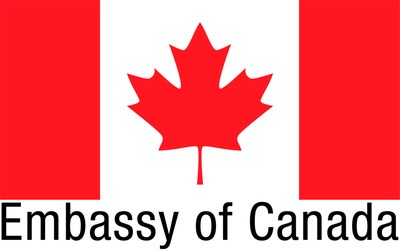Symposium-en
|
Atlas of the Anthropocene Critical Geography in Tumultuous Times Berlin, Germany June 7-8, 2019 |
 |
Humboldt-Universität zu Berlin
Unter den Linden 6, 10117
Room 2070A
The venue is wheelchair accessible.
Call for Papers
In 2002, atmospheric chemist Paul Crutzen published an article claiming that humans had so affected the makeup of the planet since the dawn of the Industrial Revolution that the Earth had entered a new geological epoch. This epoch, they suggested, could be called the Anthropocene - for this was the period in which the anthropos, or human, had overpowered nature. Over the past eighteen years, the Anthropocene-concept and the varying terminology that has been used to refer to it have become subjects of intense debate both inside and outside of academia. As of 2019, in addition to the dozens of academic texts published on the topic each year, the Haus der Kulturen der Welt in Berlin is entering its sixth year of programming on the Anthropocene, and the German Süddeutsche Zeitung has begun an article series on the topic.
Confronting the Anthropocene requires a profound epistemological shift. Because it denies the Western subject the ability to place herself in front of a neatly separate natural background, the Anthropocene-concept demands that we rethink the long-established axiomatic divides between humans and nature, global and local, living and non-living, and that we form new conceptual relationships with the spaces in which we live and of which we dream, from the manifold landscapes of the Earth’s surface all the way to outer space.
This two-day graduate symposium will offer a critical geographical exploration of the Anthropocene by charting shifts in the ways that humans move through, dwell in, and dream of space and place in a world where our grasp on the nature of nature has been fundamentally shaken. The first day of the symposium will explore and challenge categorizations of extant spaces in light of new forms of consumption, disposal, interaction, and the effects of contamination and weather in the age of the Anthropocene. How must we rethink traditional landscapes, such as the desert, the forest, the city, the ocean, and outer space, in a time of radically shifting topographies? The second day will explore the question of what a critical geography for the future might look like. How can we re-dream and re-chart utopias and spaces of resistance in the context of a changing planet, and what might it mean to create a geography for tomorrow?
In this context, we especially welcome proposals from scholars and artists in masters and doctoral programmes that propose innovative perspectives addressing, but not limited to, the following themes: contamination, waste, flight, non-Western conceptions of space, and outer space.
Participants are welcome to submit an abstract (max. 500 words) of their planned contribution and a short biographical profile (max. 100 words) to atlasoftheanthropocene (at) gmail.com, by May 8, 2019. Presentations should take no longer than 30 minutes.
The symposium is open to those who wish to participate without presenting a paper.
If you wish to attend, we kindly request that you register at atlasoftheanthropocene (at) gmail.com!
SCHEDULE
Friday, June 7
Room 2070A
Mapping the Present
10:00 Registration & opening with welcome coffee
10:30 Jörg Dünne (HU) | Writing the longue durée: Foundational Fictions and the
Anthropocene
11:30 Hannah Schmedes | A Laboratory for Living Off-World: Re-narrating Biosphere 2
12:30 Lunch
13:30 Elodie A. Roy (Newcastle) | Recorded Sound and the Logic of Waste
14:30 Tomás Usón Pizarro | Remembering future disasters: Climate Change,
memory and anticipation in Andrean cities
15:30 Coffee Break
16:00 Marie Heinrichs | Navi/gated/gaze: The Privatization of Gaze
17:00 Benjamin Steininger (MPIWG) | Petromoderns and Hydrocarbons:
‘Companion Substances‘ in the Anthropocene
18:00 END
Keynote: Lecture Hall 2097
18:30 Sarah Sharma (University of Toronto) | A Feminism for the Broken
Machine: Inhabiting the Techno-Logic of End-Times
Saturday, June 8
Room 2070A
Theory for the Future
10:00 Welcome Coffee
10:30 Ulf Häger | Mining in Outer Space
11:30 Petra Löffler (HU) | Resistance to Die? Geopolitics and Media Ecologies of
(bio)Degradation
12:30 Lunch
13:30 Jasmine Grace Wenzel | Ecolonizing: Insular Models of Space Appropriation
14:30 Tariq Jazeel (UCL) | Postcolonial Geography in the Shadow of the
Anthropocene
15:30 Coffee Break
16:00 xtro realm Artist Group | Unfolding a Speculative Terrain
17:00 ENDE
Organizers: Réka Patrícia Gál and Reed McConnell
Contact: atlasoftheanthropocene (at) gmail.com
| Dieses Symposium wird durch die Humboldt-Universitäts Gesellschaft (HUG) Verein der Freunde, der Ehemaligen und Förderer e.V. unterstützt. |
 |
| This symposium is sponsored by the Embassy of Canada to Germany. |  |
| This symposium is sponsored by the Humboldt-Labor. |

